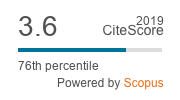Overview Logistics system is becoming a dominant factor as a competitive advantage for organizations running operations in Latin America. Thus, with the increased integration of suppliers operating in emerging countries to global supply chains, companies are forced to innovate for a better performance, especially when manufacturing specialized products and services with high sensitivity on time and costs. For decades, Latin American international trade was based on three main flows:
However, since offshoring strategies became a critical part of most of the manufacturing business models, nowadays this context is fundamentally different. The geographical dispersion around the globe of different value components of the same value chain, allowed Latin American countries as Mexico, Brazil, Chile and others to be part of the global supply chains they did not participate before. Since tremendous economic globalization allows obtaining needed goods from anywhere in the world, during the next years, identify new trends, models and technologies to improve sustainability of logistics systems running operations in emerging countries as Latin America will have great importance to global sustainable economic growth. Logistics systems is already a powerful driver of economic growth of modern nations. Similarly, companies in Latin America are looking for improving their business models, by integrating a logistics approach based on new engineering models and management perspectives. However, despite the increasing attention to the logistics systems by both practitioners and academics, the new trends of logistics systems operating in emerging countries as Latin America remain unexplored. Furthermore, although logistics systems has been explored by several researches in the past from different standpoints, most of these studies have focused on industries operating in developed markets. Since emerging markets have been recognized as the major business growth area for the century, a new and more global perspective is needed for knowing their challenges and opportunities. The aim of this special issue is to identify and diffuse innovative and high-quality research contributions regarding the use and implementation of conceptual frameworks, strategies, techniques, technologies, methodologies, informatics platforms and models applying new perspectives on logistics systems running operations in Latin America.
Possible topics for research papers include, but are not limited to:
Guest editors:
Submission Guidelines and Other considerations This special issue will only publish regular research papers. Papers submitted must not have been published previously or under consideration for publication, though they may represent significant extensions of prior work. All submitted papers will go through a rigorous peer-review process (with at least two reviewers) that will include both topic relevance as well as scientific quality. The acceptance process will focus on those papers that address original scientific contributions in the form of theoretical and experimental research and case studies applying new perspectives on Sustainable Supply Chains operating in Latin America. Before submission authors should carefully read over the journal’s Author Guidelines. Prospective authors should submit an electronic copy of their complete manuscript through the JIEM submission system at https://www.jiem.org/index.php/jiem/login according to the following timeline:
|








